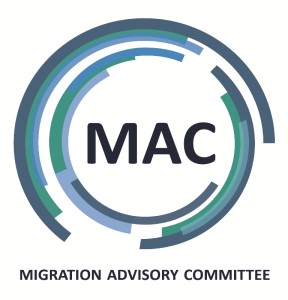Intra-company Transfer report: letter to the Home Secretary (accessible version)
Updated 20 April 2022
Rt Hon Priti Patel MP
Home Secretary
2 Marsham Street
London
SW1P 4DF
13 October 2021
Dear Home Secretary,
Today we published our review of the Intra-Company Transfer (ICT) immigration route; a copy of this has been provided to your office.
We have carried out this review at a time of ongoing change and uncertainty in the UK economy and labour market as the global economy continues to recover from the disruption caused by the COVID-19 pandemic. Despite this, we received a large quantity of evidence and are grateful to stakeholders for their input during this challenging time and we look forward to continued engagement with them.
We make a series of 25 recommendations about the ICT route. These cover a range of issues, including skills and salary thresholds, eligibility for the route, compliance checking, switching and settlement.
In several areas, we find the current route is working well and no significant changes are required. For example, we recommend the skills threshold for the ICT route remains at RQF6+, the Immigration Skills Charge continue to be levied on the ICT route (where trade agreements do not preclude this), there should not be any changes to the current rules for switching into other visas and there should continue not to be any English language requirement for ICT migrants.
We have also recommended several changes to the ICT route; these include:
- The ICT route should become a route to settlement, without the need to switch to other routes to obtain settlement. Time spent on the ICT visa should also count towards settlement if the worker does switch into another route.
- All the salary thresholds for the Intra-Company Transfer route should be updated annually.
- The Home Office should consider increased monitoring and enforcement of the ICT route to determine whether there is widespread abuse of the rules. Particular focus should be given to accommodation allowances and reported salaries.
- The Home Office should collect further data on protected characteristics from visa applicants, in order to provide a more complete picture on applicants, but this should be done on a voluntary basis and the data should not be shared with decision makers so it cannot impact eligibility.
As well as the ICT route we have provided analysis and recommendations on other business mobility issues, including subsidiaries, secondments, and short-term assignments. We have received limited evidence on these issues, and there is little data available, which has meant our ability to make evidence-based recommendations has been severely constrained. However, we have made suggestions for initial parameters for trials that the Home Office can run to obtain suitable evidence.
We look forward to your response to our recommendations on ICTs and business mobility and would be happy to engage directly with Home Office officials if there are any further queries.
We will be publishing our second Annual Report before the end of the year, where we will report on key aspects of the UK’s new immigration system. Additionally, we are already working on the commission from the Minister for Future Borders and Immigration to advise on the impact of ending freedom of movement on adult social care and we will respond to that by April 2022. We have made positive initial progress and intend to provide an update in our annual report.
In addition, we would appreciate early advice from the Home Office on plans for the Shortage Occupation List. In particular, it would help both the MAC and stakeholders if a clear scope and timeline is established for the delivery of any review in 2022 as soon as possible.
We look forward to further engaging with the Home Office and providing our independent evidence-based advice in the coming year.
On behalf of the Migration Advisory Committee,
Yours sincerely,
Brian Bell
Chair, Migration Advisory Committee

